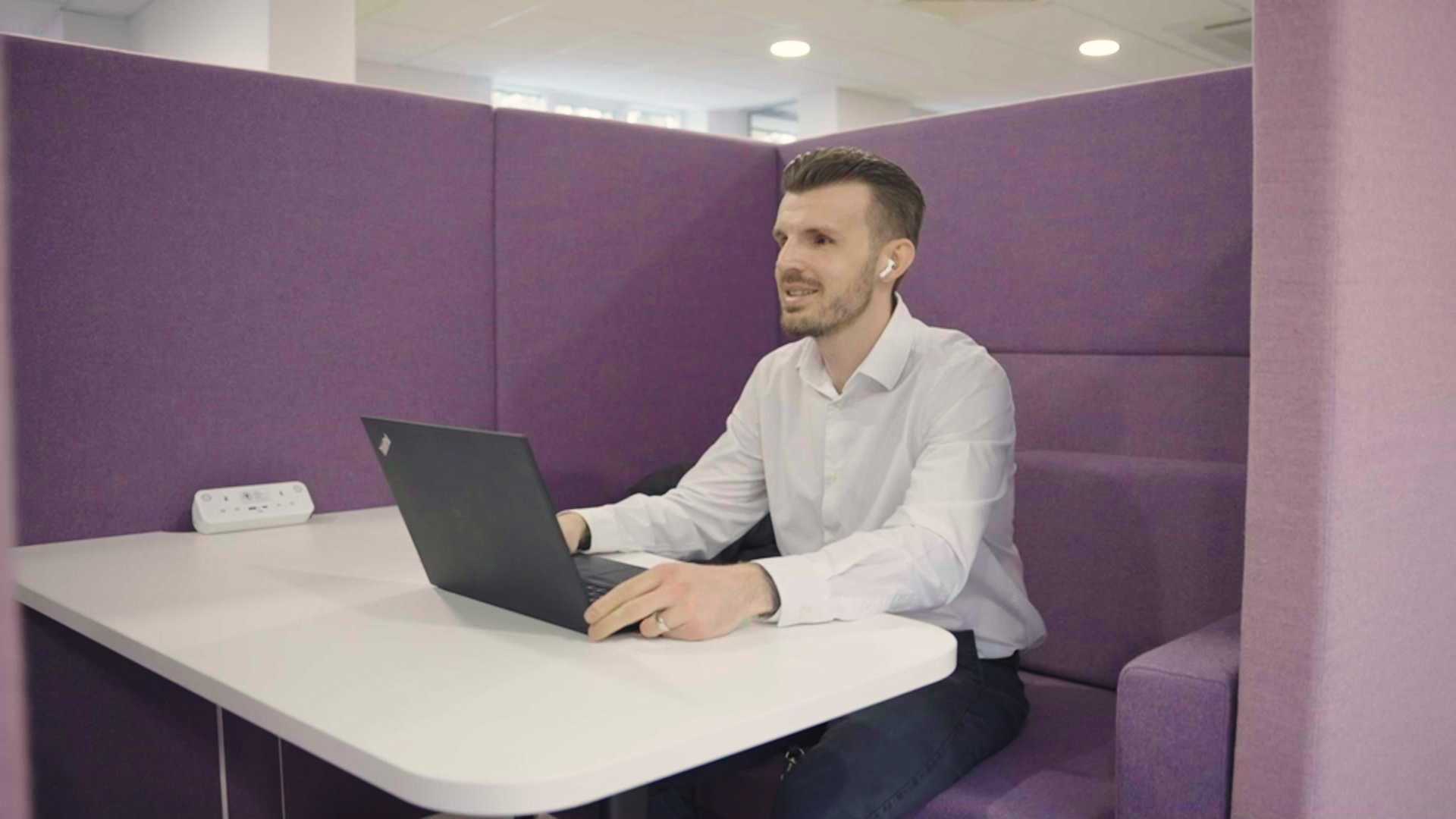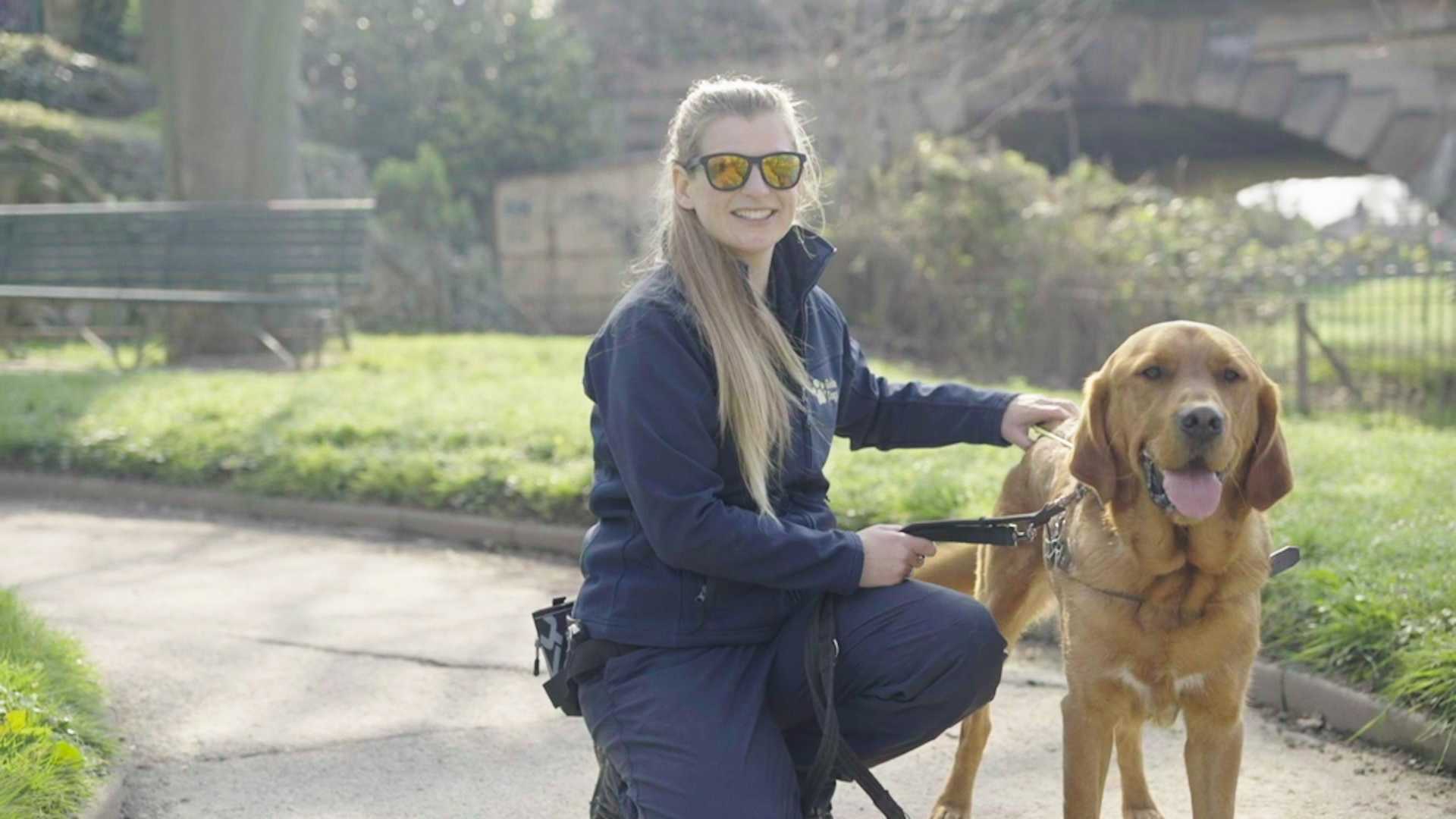Working at Guide Dogs isn’t your everyday office job. This is heads, hearts and hands-on stuff. Each month our Spotlight series shines a light on one of our many life-affirming roles.
Typical day
“Families don’t want sympathy; they want to feel as if the person they’re talking to has a real understanding of what they’re going through.” This month, family support officer Abigail Strong shares how it feels to help parents receiving a first diagnosis of their child or teen’s vision impairment, and why she loves helping families to navigate the world of vision impairments.
"Because there’s no such thing as a typical family, there’s no such thing as a typical day – every child’s sight condition is different.
My role is to give information, advice, and guidance, as well as emotional support to parents whose child may have just been diagnosed with a vision impairment or who have had a diagnosis for a long time, but may have a new concern.
I have worked with many families who are at the very beginning of their journey. A huge part of the job is listening to parents fears and concerns, as well as signposting them to all the services that Guide Dogs provides and making referrals to statutory and voluntary agencies. On any day, I might help someone apply to get a social worker, make a referral to occupational therapy, or support a family in a referral to a specialist hospital.
There are so many things for parents to take in at this stage, not just the details of the child’s condition, but also things like applying for disability living allowance, ensuring a family is receiving statutory support, or understanding information around certification and registration. They are often scared and worried for their child’s future and we can support with this by offering guidance and a listening ear.
An awful lot of what I do is provide emotional support to parents who are fearful about their child’s future and are often feeling bewildered or overwhelmed. We give parents the space to voice their worries to someone who has a good understanding of what they’re facing.
How I got here
I studied fine art at university because I wanted to work as an art therapist for children with special educational needs (SEN). I’ve also got personal experience of what it’s like to live with a vision impairment; my brother was diagnosed with retinitis pigmentosa when he was just five years old, and I was diagnosed with the same thing at 15. Plus, my brother had a guide dog, so I knew the work of the charity pretty well.
Before joining Guide Dogs, I’d worked at a national charity providing support for children with disabilities by organising weekend and holiday play schemes and respite. I’d also worked in an educational setting for children with SEN, so I’ve always worked with children with additional needs and their families.
What makes a good family support officer?
You need to understand the challenges that parents are facing and the emotions they may be feeling. Your approach needs to be empathetic rather than sympathetic. Families don’t want sympathy; they want to feel as if the person they’re talking to has a real understanding of what they’re going through.
It’s helpful to have experience and knowledge of working with parents of young children, and teenagers who have a vision impairment or an understanding of disability and additional needs. It will involve liaising with professionals, so good communication skills are key. The transferable skills you need are empathy and a solid understanding of working out the systems of health, social care and education. Looking at our team, we all come from varied backgrounds such as Eye Clinic Liaison Officers (ECLO), Social Workers, Qualified Teachers of the Visually Impaired (QTVI) and trained counsellors.
What are you proud of?
I love being able to work with individual families, and knowing that I have made a positive impact. For the past two years I’ve been working with a family whose daughter was diagnosed with degenerative eye condition. At first, I’d speak to mum frequently as she was very emotional and fearful for her daughters future, and now with my support she is feeling more positive and empowered
During lockdown we saw that there was a big gap in support, especially for parents of very young children receiving a diagnosis of a vision impairment. Hospital and statutory services were limited in the support they could provide, and parents were limited in opportunities to have face to face meetings with professionals or other parents. We tried to mitigate some of this isolation by establishing parent support groups via zoom. These were hugely popular! We received really positive feedback from parents who’d felt completely lost after their child’s diagnosis. Some of them have made lasting friendships and really supported each other at these monthly sessions, and I’m proud we were able to facilitate that.
What’s next for family support
I’m so excited - we’re launching a special support group for dads of children who have a vision impairment. At family weekends, we delivered separate groups for mums and dads. These were hugely successful and the dads expressed this is something they would like to do in the future, so this is what we have done! The group will also have the opportunity to meet face to face for an exciting overnight activity weekend in September!"


